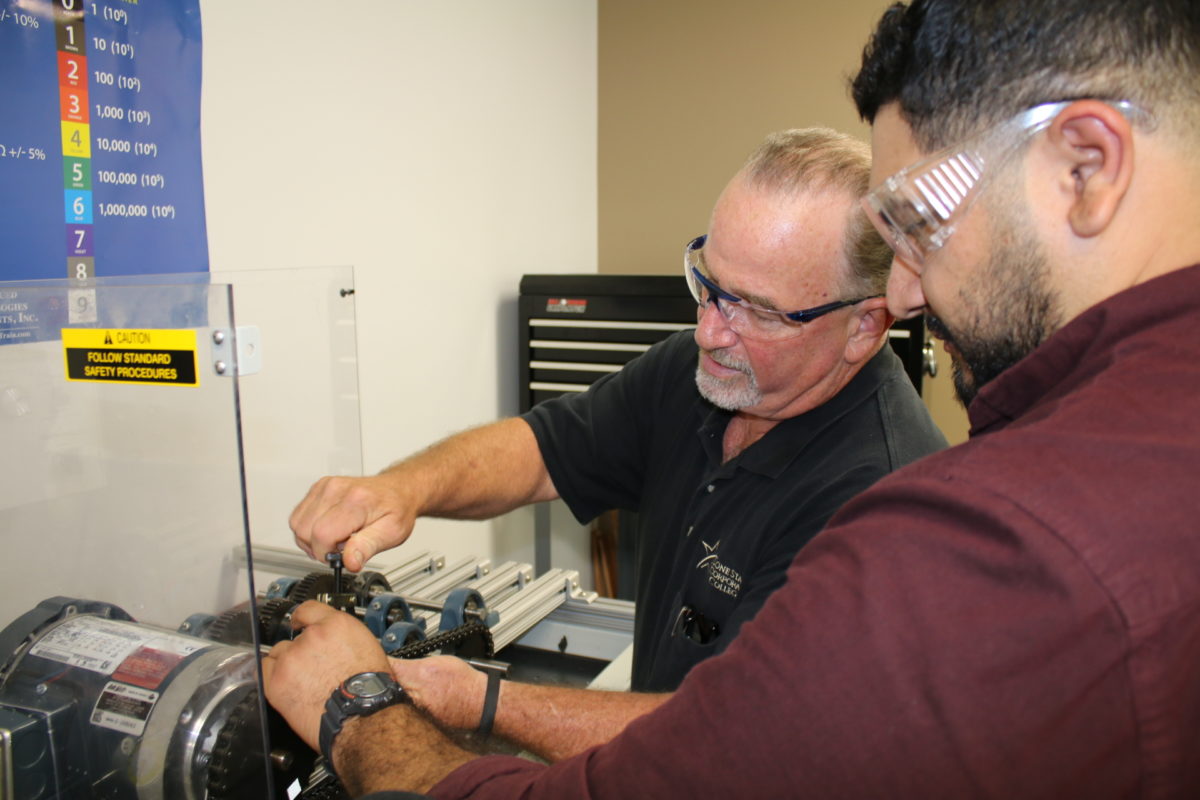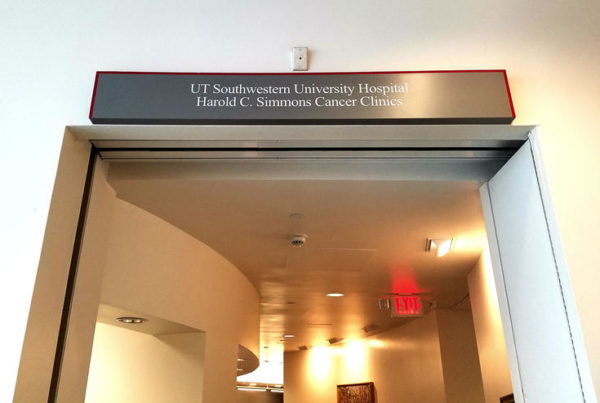There was a time not long ago in Texas when knowing how to drill for oil and gas was a ticket to a great job.
But in the past two years, as the price of oil dropped, more than 100,000 Texas oil workers lost their jobs.
But where did those workers go?
We found that workers once set on oil careers are re-thinking, and re-tooling, so they can work where the jobs are.
“I’ve gotten a lot of petroleum engineer friends of mine that wish they got their bachelor’s degree in mechanical engineering, ”Michael Young, director of advanced technology at Lone Star College’s Energy and Manufacturing Institute in Cypress, said.
“Because if you’re so specialized in something, if they need that, then you’re really popular,” he says. “But if you’re not needing it, you don’t have that diversity of portfolio.”
Young teaches applied mathematics in the community college’s mechatronics and machining program, an oil and gas gateway program.
For 10 weeks, students learn both theory and practice four days a week from 8 a.m. to 4 p.m.
On a recent afternoon, students were practicing how to set up equipment that uses sprockets and chains.
Their instructor for this class, Mike Branch, explains the use of the machine.
“In the real world, whether it’s in a manufacturing facility or it is out in the oil field, you have these to where it would be pumping solution maybe to the drill head down on the drill stem,” he says.
The students are also learning how to wire electric equipment and operate pumps.
It used to be a very popular class.
“In the past we’ve had as long as a four-month waiting list to get into these classes,” Branch says.
Then the oil downturn came, and working in oil and gas suddenly didn’t seem so attractive anymore.
There are currently four students in a class that has room for up to 18.
Branch is hopeful that enrollment will increase again in the fall, now that things are getting better in the oil patch.
But how real is the recovery at this point?
Ed Hirs, an energy economist at the University of Houston, is not too optimistic – especially considering that the price of oil has been lingering below $50 a barrel.
“We may be set up for a double-dip, just as we had from ’82 to ’86,” he says. “And I’d been expecting, actually from January I’d been expecting $38 a barrel oil by the fall.”
Still, drilling activity has increased sharply this year in Texas, which means demand for workers is also up – at least in some oil fields.
“The Permian Basin in Midland, where there are multiple formations that can be drilled, and drilled economically, even at these prices, there’s a shortage of workers,” Hirs says.
In others, he says, there’s a surplus.
Some workers are fleeing the upstream drilling operations, he says, and heading for the downstream refineries and other heavy industries.
“Manufacturing, service industries, robotics, electronics, system design, chemical engineering,” Hirs says. “And many of them had switched to downstream and gone to the refineries or petrochemicals, plastics.”
With the skills learned in oil and gas programs like the one at Lone Star College, workers might not be bound to the energy industry.
Young says it may have started as an oil and gas-focused program, “but, most of my machining students are being hired by non-oil and gas people right now. They’re plastics people, they’re aerospace bolt people, they’re non-oil and gas manufacturing people.”
Brad Emerson, 49, has worked in oil and gas for most of his life. He said he’s been laid off a few times but with this most recent downturn he’s had enough. So he enrolled in the Lone Star program, “and wanted to get into automation, robotics and learn the mechanical side, pneumatics, hydraulics hands on.”
Emerson says with his new skill set, he has more options.
“I can apply what I’m learning here in an oil and gas environment and I can use that same knowledge in food and beverage, any type of industry that has automation,” he says.
The folks at Lone Star College would like that fact to be more widely known, so that the success of students doesn’t have to live or die with the oil economy.
















